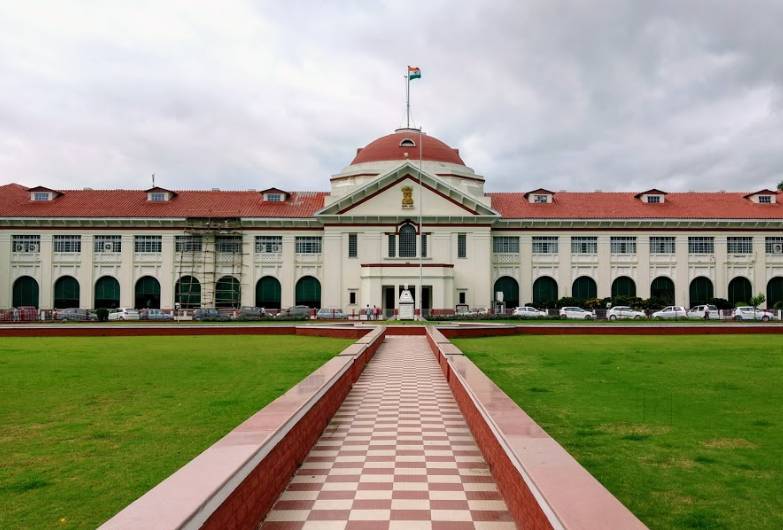Latest News
PATNA HC : VOTER ID CARD, AADHAAR CARD, PAN CARD etc, NOT EVIDENCE OF CITIZENSHIP & FOREIGNERS DOESN,T BECOME INDIAN CITIZENS ON MARRIAGE.

Kiran Gupta was born and raised in Nepal, marries to Prasad Gupta an Indian in 2003. Later began to permanently reside with her husband in India. After her marriage, her name was registered in the voters' list made in the year 2008 for elections to the Assembly of Bihar; she has a bank account with a bank in India registered in her name; Pan Card granted by the Income Tax Department, and an Aadhaar Card. She was elected as a Mukhiya of Gram Panchayat in 2018. The State Election Commission cancelled the election under Section 136(1) of the Bihar Panchayat Raj Act, 2006 because of her not being an Indian citizen. She approached the High Court against the order issued by the Election Commission, claiming that she has already given up the Citizenship of Nepal; therefore has acquired the Indian Citizenship. The Single bench rejected her writ petition keeping that, she being not a citizen of India implicates ineligibility of her being selected as Mukhiya under the Panchayat Act.
“Mere Surrender of Foreign Citizenship and Marriage Does Not Bestow the Indian Citizenship”
The Division Bench, which examined her writ appeal, took the reference of the provisions of the Citizenship Act and landmark precedents pronounced by the Supreme Court in the matters related to citizenship. The court noted that mere surrender of original Citizenship cannot be viewed as the intent of seeking Indian Citizenship. The court made the following observations:
“The Citizenship Act does not put forward for a situation where a person living in India, upon surrenders her/his original Citizenship is ex officio deemed to be a citizen of India. therefore, continuous and unremitting stay in India cannot be a reason for determining, in expectancy, of a person choosing to exercise the right seeking Citizenship under the Indian Citizenship Act. The foreigner does not become an Indian citizen on marriage with a citizen under this Act. After the marriage, the foreigner has an option to get enrolled as an Indian citizen. Even then, the person must fulfil the requirement of residency before they can apply for Indian Citizenship."
“Voter ID, Aadhaar, PAN Card, and Bank Account is not Proof of the Indian Citizenship"
The court also examined the arguments that she owned several documents such as Voter ID,
Aadhaar and PAN Card and also had a Bank account in the Indian bank. Over this the bench stated:
“Bare enrollment of a person’s name in the voter list, by virtue of the fact, in no way bestows the Indian Citizenship. The objective of the PAN card is to ease the payment of taxes to the Indian government, which foreigners also have to pay...The eligibility criteria for obtaining an Aadhaar Card is residency in India for a period of 182 days or more, not citizenship. Section 9 of the Aadhaar Act, 2016 clearly states that an Aadhaar number or authentication thereof shall not by itself confer any right of or be Proof of Indian Citizenship or domicile of the Aadhaar number holder. Regulations under the RBI are silent on the documents as proof of Indian Citizenship. To avoid the Money Laundering, proof of identification and address is necessary for the persons opening bank accounts. Despite that, Citizenship is not a criterion for having a bank account in India. Voter ID cards are not incontrovertible evidence of Indian Citizenship- presumption attached to the issuance of the voter ID card may be challenged by a complaint that states material facts under Section 136 of the Panchayat Act. The bench also refused the plea to direct the Central Government to grant the petitioner Indian citizenship observing that it would impinge upon the Executives functions. However, it observed:
Although, in light of the unusual situation of the petitioner; her common residence and family life in India; and India’s international law responsibility is to prevent statelessness, we guide that upon receipt of the petitioner's application, if so filed, the appropriate authority may consider her application expeditiously, keeping in mind the complications that have emerged in her legal status. The court thus held that the State Election Commission was empowered to set aside the election on the specified ground under Section 136(1) of the Panchayat Act of her not being an Indian citizen.”
The Patna High Court has said that a foreign national does not automatically become an Indian citizen on marriage with a citizen. The bench consisting of Chief Justice Sanjay Karol and Justice S. Kumar stated that mere acquisition of a Pan Card, Voter ID Card, or Aadhar Card cannot be said as evidence of Indian Citizenship. The court also added that surrender of the Citizenship of Nepal does not bestow any right of the Indian Citizenship.
Document:



































































































